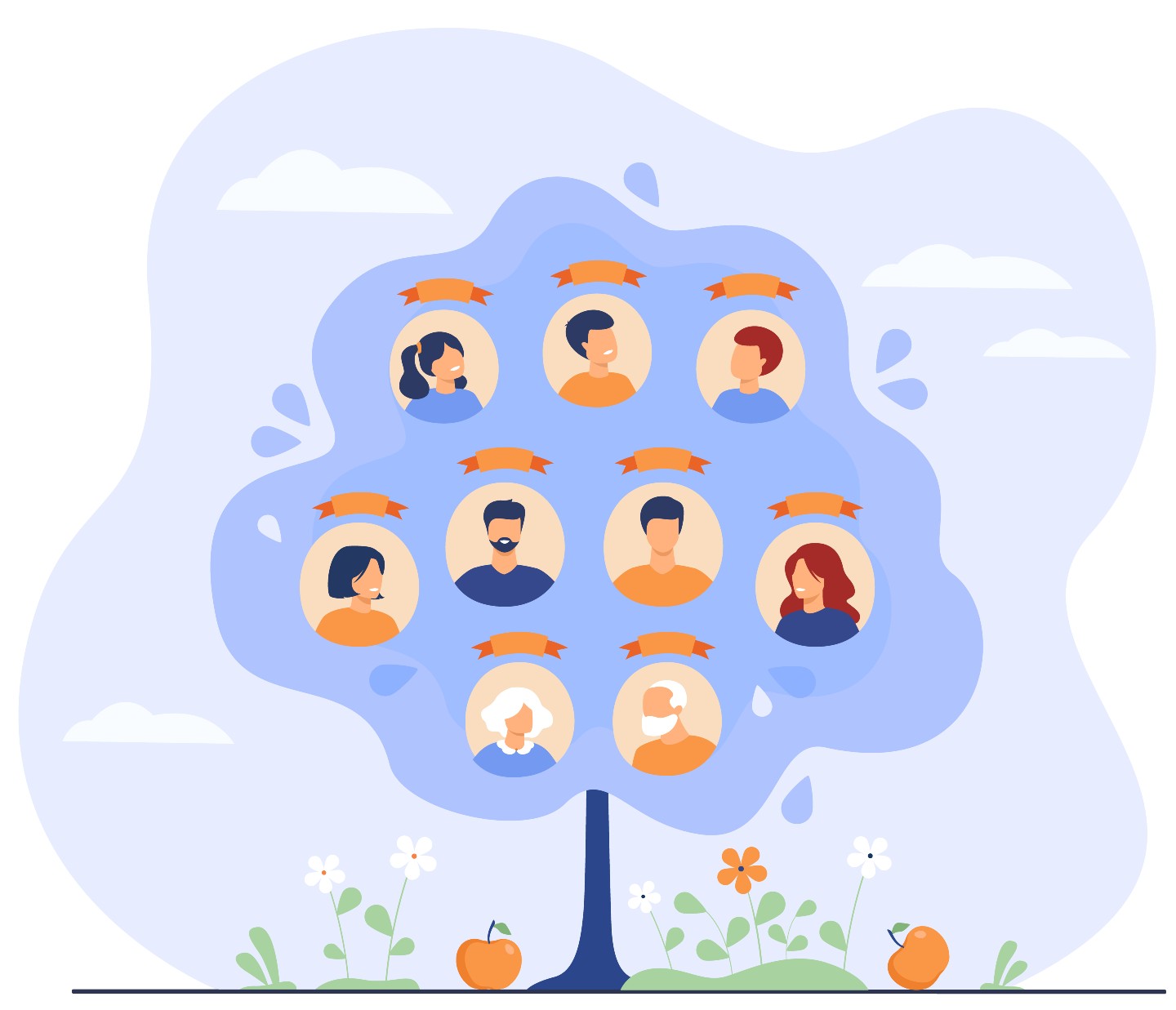
Genealogy is a fascinating field that allows us to explore and understand our family history. By delving into the past, we can uncover compelling stories, connect with our ancestors, and gain a deeper sense of identity and belonging. In this article, we will explore 11 fascinating genealogy facts that will pique your interest and ignite your curiosity. From discovering famous relatives to tracing lineage back centuries, genealogy opens up a world of possibilities. So, whether you are just starting out on your genealogy journey or are already knee-deep in ancestral research, get ready to be captivated by these intriguing facts that shed light on the intricate tapestry of our family trees.
Key Takeaways:
- Genealogy is like being a history detective, uncovering family stories through records and DNA. It can reveal surprising connections and help us understand our inherited traits and health conditions.
- Genealogy brings families closer, fostering a sense of identity and belonging. It’s a journey of emotional discoveries, sparking unity and preserving the captivating tapestry of our family’s history.
Genealogy is the study of family history.
Genealogy is the fascinating pursuit of tracing one’s ancestry and uncovering the stories of our past. By examining historical records, DNA testing, and oral traditions, individuals can piece together their family tree and learn about their roots.
The oldest known genealogy dates back to ancient civilizations.
Genealogy has ancient origins, with the oldest known genealogical records dating back to ancient civilizations such as the Egyptians and Mesopotamians. These civilizations documented their lineage to establish royal connections and assert power and authority.
Genealogy can help uncover surprising family connections.
Through genealogical research, individuals often make unexpected discoveries, such as distant relatives in other parts of the world or connections to famous historical figures. Genealogy has the power to bridge gaps and create a deeper understanding of our shared human history.
Online databases and DNA testing have revolutionized genealogy.
In recent years, the availability of online databases and DNA testing services has revolutionized genealogical research. These tools provide access to vast collections of historical records and enable individuals to connect with relatives they might have never known existed.
Genealogy research requires critical thinking and attention to detail.
Successful genealogists must be meticulous in their research, analyzing various sources and cross-referencing information to ensure accuracy. The process often involves piecing together fragmented records and solving puzzles to complete the family tree.
Genealogy can provide insight into inherited traits and health conditions.
By studying family history, individuals can gain insight into inherited traits, health conditions, and even genetic predispositions. This knowledge can be valuable when it comes to understanding potential health risks and making informed decisions about personal well-being.
Genealogy has become a popular hobby and profession.
Many individuals have taken up genealogy as a hobby, spending countless hours researching their family history. Additionally, the growth of the genealogy industry has led to professional genealogists who offer their expertise to help others uncover their ancestral roots.
Genealogy can foster a sense of identity and belonging.
Learning about one’s family history can provide a sense of identity and belonging. It allows individuals to connect with their heritage and understand the cultural influences that have shaped their lives.
Genealogy research often involves collaboration and sharing.
Genealogists frequently collaborate with others who share a common interest in family history. Online forums, social media groups, and genealogical societies provide platforms for exchanging information, tips, and stories.
Genealogy can bring families closer together.
The process of researching and discovering family history can bring relatives closer together. It sparks conversations, preserves stories, and fosters a sense of unity, as family members come together to honor their shared heritage.
Genealogy can lead to unexpected emotional connections.
Genealogy research often uncovers emotional stories and connections, such as finding long-lost relatives or discovering the truth behind family legends. These discoveries can evoke a range of emotions, from joy and excitement to sadness or even healing.
Conclusion
In conclusion, genealogy is a fascinating field of study that allows us to trace and understand our ancestral roots. By delving into our family history, we can uncover valuable information about our past, discover long-lost relatives, and gain a deeper appreciation for our heritage. Whether you’re just starting out or have been researching for years, these 11 genealogy facts serve as a solid foundation for your journey into the world of genealogy. Remember to stay organized, consult reliable sources, and be prepared for unexpected surprises along the way. Happy researching!
FAQs
Q: How do I get started with genealogy research?
A: To get started with genealogy research, begin by gathering as much information as possible from living relatives. Document names, birth dates, marriage dates, and any other pertinent details. Utilize online genealogy databases and websites, visit local historical societies, and access public record repositories to expand your research.Q: How accurate are online genealogy databases?
A: Online genealogy databases can be a valuable resource, but it’s important to exercise caution. Verify the information found by cross-referencing it with various sources. Remember that errors can occur due to transcription mistakes, misinterpretations, or incomplete records. Always seek primary sources whenever possible.Q: How can I overcome common genealogy research challenges?
A: Common challenges in genealogy research include name variations, missing records, and illegible handwriting. To overcome these obstacles, consider using wildcard searches, alternate spelling variations, and collaborating with fellow researchers. Don’t be afraid to reach out for assistance or consult professional genealogists for complex cases.Q: Is DNA testing beneficial for genealogy research?
A: DNA testing can be a powerful tool in genealogy research, as it can provide insights into your ethnic origins and help identify genetic matches with potential relatives. It is important to understand the limitations and potential privacy concerns associated with DNA testing, so it’s advisable to do thorough research before proceeding.
Genealogy offers endless opportunities for exploration and discovery. Tracing family history can yield unbelievable facts, while popular platforms like MyHeritage provide astonishing insights. FamilySearch also holds a wealth of information waiting to be uncovered. Whether you're a seasoned researcher or just starting your genealogical journey, these resources will help you piece together the puzzle of your ancestral past. So, if you're ready to embark on an exciting adventure through time, keep reading to learn more about the incredible world of genealogy and the tools available to assist you in your quest.
Was this page helpful?
Our commitment to delivering trustworthy and engaging content is at the heart of what we do. Each fact on our site is contributed by real users like you, bringing a wealth of diverse insights and information. To ensure the highest standards of accuracy and reliability, our dedicated editors meticulously review each submission. This process guarantees that the facts we share are not only fascinating but also credible. Trust in our commitment to quality and authenticity as you explore and learn with us.


